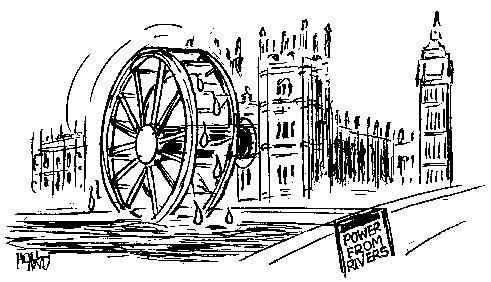When Nick Clegg assures us that he is a man of principle, he is telling the truth. He does have one deeply held principle: the ground of his political being. He believes in a federal Europe. Europe is not only his continent. It is his country.
But there is a problem. Such views are not widely popular with the electorate. They are not even popular with Mr Clegg’s own MPs, who would like to hold on to their seats. This is why Nick Clegg often seems anaemic and insipid. To be obliged to remain silent on the one subject which could transmute platitudes into eloquence; there could be no greater handicap for a politician.
At times, it can be a grovelling and humiliating silence. In 2005, the Liberals were prepared to sound courageous on the proposed EU constitution. Their Election Manifesto declared that: ‘We are therefore clear in our support for the constitution, which we believe is in Britain’s interests.’ It went on to reassure anxious voters who did not agree: ‘But ratification must be subject to a referendum of the British people.’
That seems as clear a commitment as an honest man could give or a concerned voter expect. But after a lick of paint turned the constitution into a mere Treaty, the Liberals rushed to help Gordon Brown to lie it through parliament. Given the parliamentary arithmetic, it was not necessary for them to vote in favour. They merely had to abstain, which they did, thus abstaining themselves out of any claim to honour or decency. In the Lords, the vote was tighter. Abstention was not enough. To pass the Lisbon Treaty, it was necessary for the Liberals to extract the fence from their fundament and vote for a full-scale breach of promise. So they did. Their parliamentary business managers always know how much spittle to put on the lick.
Mr Clegg’s covert fixation with Europe helps to explain his vagueness on domestic issues. In September 2008, he was asked how much a single old-age pensioner received from the state each week. ‘About £30’ was his answer. The true figure was £90.70. Even by the standards of the Euro-nomenklatura, this suggests a deficient grasp on reality.
That said, the realities of government have never been a high priority for Liberals. When an election comes, they simply fall back on their constituencies and fight the campaign as if it were a hundred by-elections. A few years ago, a Liberal handbook advised party members how to do this. ‘You can secure support from voters who normally vote Tory by being effectively anti-Labour and similarly in a Tory area secure Labour votes by being anti-Tory’.
Local opportunism fosters national incoherence. For many years, the Liberals have called for a moratorium on road building. Nick Clegg would cut £1 billion from the government’s road-building programme. Yet the Liberals supported the Newbury, Batheaston and Lancaster bypasses, and the M74 extension project. Mr Clegg finds airports equally baffling. He opposes expansion at Heathrow while supporting growth at Birmingham, Manchester and Liverpool.
The Liberals always find it easy to live with contradictions. That is even true of Vince Cable, despite his attempts to project himself as a still point of consistency in an uncertain world. By Liberal standards, this might be true, but in March 2009, he complained that: ‘The obsession with the legacy of debt seems to be inhibiting Conservative front-benchers.’ By June, he had concluded that ‘the legacy issues are acute and likely to be long-lasting’. But there is one area where Mr Cable is reliable: taxes. He wants to put them up, as do most Liberals. Theirs is a party for those on the left who are uncomfortable with trade unions.
It is also a party for a leader who is uncomfortable with economic policy. What follows is classic Cleggery, and it comes from an interview in Lib Dem Voice, no less. He was asked about the funding for his schools policy. ‘I have given you if you like a fluctuating answer because I think that I’m not fixed in my own mind about where the money would come from.’ So never let it be said that Liberals are incapable of telling the truth. If you are attracted by fluctuat-onomics and breaches of faith on Europe, then by all means vote for Nick Clegg.






Comments